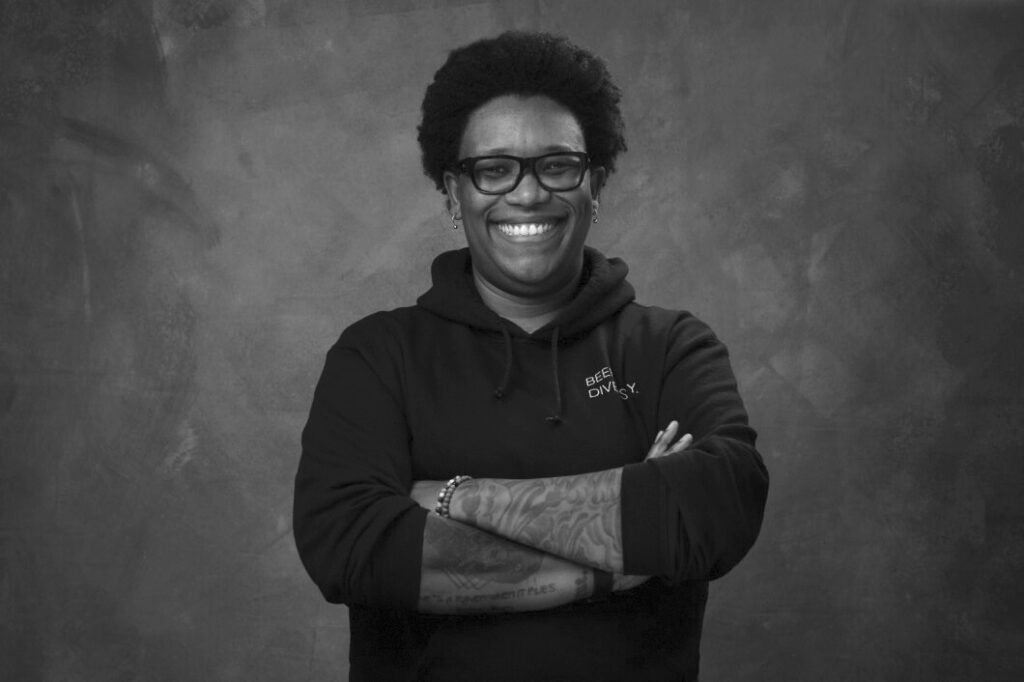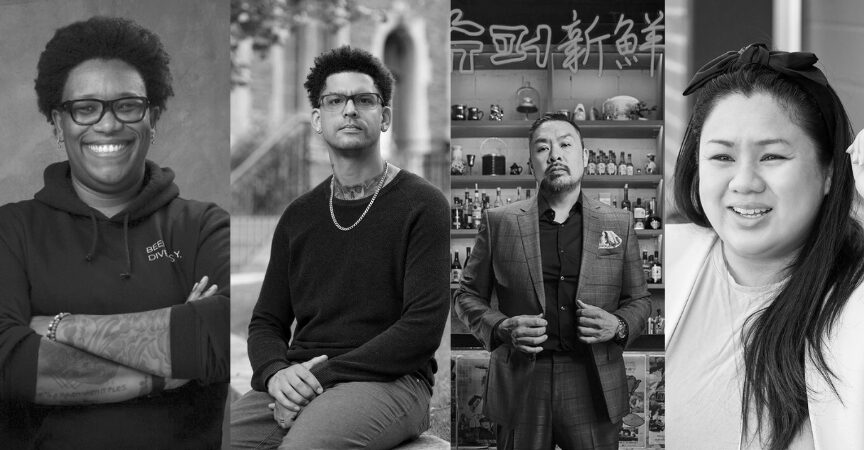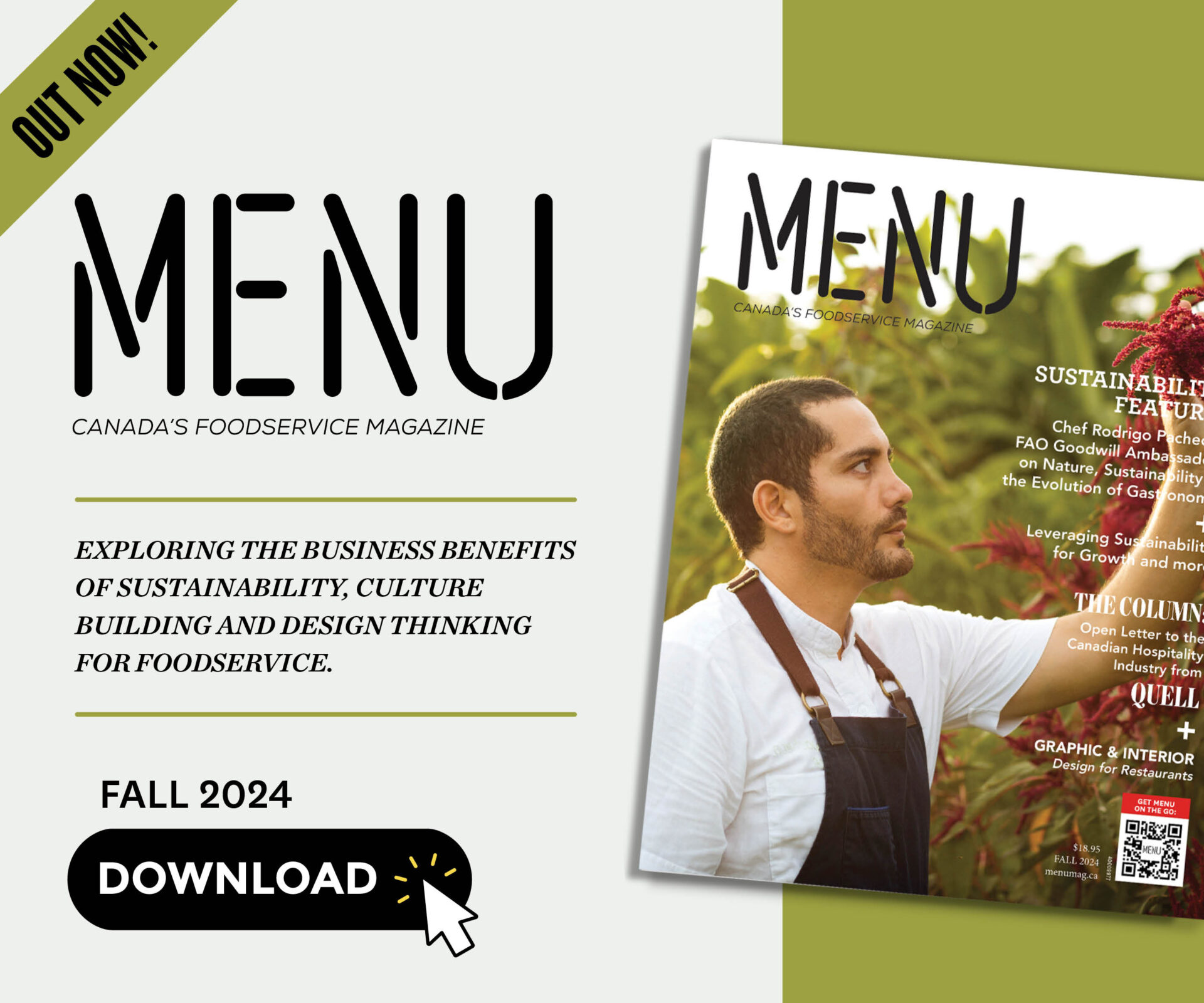OPEN LETTER TO THE CANADIAN HOSPITALITY INDUSTRY
Written By: Leland Harper, Stephanie Lui-Valentim, Trevor Lui, Ren Navarro
STRENGTHENING OUR COMMITMENT TO DE&I IN UNCERTAIN TIMES
To the leaders, visionaries, and changemakers of Canada’s hospitality sector:
The current era of uncertainty has forced many businesses into a defensive posture. Economic pressures, political turbulence and the growing polarization in public discourse have shifted priorities, often leaving once-urgent social imperatives—like diversity, equity, and inclusion (DE&I)—pushed to the margins. Yet, now more than ever, we must resist the impulse to retreat. The Canadian hospitality industry must show resilience and renewed commitment to DE&I, not as a secondary or “nice-to-have” initiative, but as a foundational pillar of business success and social responsibility.
For the hospitality industry, this rollback is particularly devastating. We know that a commitment to DE&I is not just about representation; it’s about leadership, innovation and the very future of our sector. Perhaps more than any other industry, equity-deserving groups are our future workforce and our future customers. We MUST learn how to attract, retain, engage and elevate underrepresented people into leadership roles to sustain our growth and reputation.
The Illusion…
In the wake of global movements for racial and social justice, including the widespread protests following the deaths of George Floyd and Breonna Taylor, many corporations—including those in hospitality—rallied behind DE&I initiatives. Statements were made, budgets were allocated, and policies were put in place. It felt, for a moment, like genuine change was possible.
However, four years later, the initial surge of DE&I momentum has faltered. Corporate leaders— including some in the foodservice sector—once vocally supportive of these efforts, have begun to sidestep conversations around equity. Some have quietly scaled back their DE&I budgets or reassigned these initiatives to marketing departments—a move that exposes the shallow and possibly performative nature of their initial commitments.
While advocates like us have been sharing the same message for four years, there’s little real penetration in leadership. The data reflects this reality. A 2024 report by the global employee engagement, performance and development platform Culture Amp revealed that while 56 per cent of the global organizations that participated had DE&I leadership roles in 2021, only 41 per cent retained those positions by 2023.1 The same report also found that, in recent years, the landscape of corporate DEI investment has shifted, with HR teams feeling the strain of diminishing resources and focus. In 2021, a robust 85 per cent of HR professionals believed their organizations were fostering a diverse and inclusive culture—a sentiment that had notably dropped to 77 per cent by 2023. More concerning was the reduced emphasis on addressing DE&I beyond mere compliance; 71 per cent of HR teams in 2021 reported focusing on broader, more meaningful aspects of diversity, yet only 60 per cent felt the same two years later.
But perhaps the most disheartening aspect is the continued scarcity of resources. Even in 2021, only 34 per cent of HR professionals believed they had sufficient support to uphold their DE&I initiatives, a figure that barely shifted to 33 per cent in 2023. These numbers paint a troubling portrait of corporate commitment to diversity: while the rhetoric of DE&I might still echo in boardrooms, the tangible support behind it appears to be waning. Even without the rollback, global management consulting firm McKinsey & Company pointed out that, even with sustained investment in DE&I, progress is slow.2 In 2020, companies globally invested approximately $7.5 billion (USD) in DE&I initiatives, such as employee resource groups (ERGs). This figure is expected to more than double, reaching $15.4 billion by 2026. However, despite these investments, it is projected that at the current pace, it will take 151 years to achieve full global gender economic equality.
That’s why knowing which factors and initiatives yield the greatest, most sustainable results is of paramount importance. That’s also why sprinkling in a Black History Month campaign or Land Acknowledgement Ceremony to showcase your DE&I bona fides to your customers will never show positive impact on your workplace culture.
The context…
It is impossible to discuss the rollback on DE&I without addressing the broader context: the intersection of policy, economics and politics cannot be ignored. Social instability, compounded by the looming U.S. elections and global tensions, has made corporate leaders cautious. The fear of alienating certain segments of the population—fueled by the rise of anti-DE&I rhetoric—has led to the abandonment of many initiatives that were once central to corporate strategy.
In Canada, the narrative has shifted dramatically. International students, who once helped fill staffing gaps in hospitality, are now being blamed for high unemployment and housing shortages. This sentiment echoes a broader global trend where immigrants, previously relied upon to perform essential jobs, are now viewed as a “problem” once their labour is no longer immediately required.
But our memories are short. During the pandemic, the immigrant population stepped up and did the work no one else wanted to do. Now that they’re not needed, we have an “immigration problem.” This troubling and rapid shift reflects a broader issue within our sector: the inconsistency in how we value and respect workers, particularly those from marginalized communities.
As political polarization deepens in America (with Canada not too far behind), a number of companies are retreating from their commitments to DE&I in a bid to appease certain conservative factions of their customer base. High-profile figures like Elon Musk have fueled these shifts by claiming that DE&I initiatives undermine meritocratic values, casting these efforts as unnecessary or even harmful. But such rollbacks are not only shortsighted—they are fundamentally out of step with the rapid demographic changes underway, particularly in countries like Canada.
The business case…
Canada’s demographic landscape is evolving rapidly. By 2036, nearly half of the population will be immigrants or the children of immigrants, with a growing proportion from non-European countries. Indigenous populations and other equity-deserving groups are also advocating for greater representation across all sectors. Abandoning DE&I initiatives during this demographic shift isn’t just a missed opportunity—it’s a business risk. Companies that fail to engage with and elevate these groups risk being left behind by a workforce and consumer base that is increasingly diverse.
Diverse teams foster innovation, make better decisions and improve employee engagement, making DE&I central to long-term success in a multicultural society. Rolling back these programs may alienate the very employees and consumers driving future economic growth. While appeasing a narrow customer base may offer short-term gains, it comes at the cost of a company’s competitive edge and ability to attract top talent in a world that increasingly values equity and inclusion.
The evidence is clear: investing in DE&I is one of the most critical strategies for business success. Diverse companies outperform their counterparts in innovation, employee satisfaction, and financial returns, with Culture Amp reporting showing that global businesses investing in DE&I see stock prices rise by 6.8 per cent and that 84 per cent of employees feel more engaged when they perceive their company values diversity.
In dynamic, pace-setting industries like hospitality, diversity isn’t just ethical—it’s a competitive advantage, helping companies remain agile and meet the needs of an increasingly multicultural market. Yet, even at Quell, we continue to hear stories that reveal the opposite trend. A recent comment from a potential client that a menu was “too Asian” reveals how entrenched biases persist beneath a thin veneer of social justice, despite the clear and growing demand for authentic, diverse culinary experiences. This remark underscores that, for some, old attitudes are merely masked by performative gestures toward inclusion, rather than genuine efforts to embrace diversity. This disconnect between what the data tells us and how certain decision-makers behave is symptomatic of an industry stuck in its ways, reluctant to embrace the change that our customers and employees are calling for.
The social case…
The rollback on DE&I also carries profound social implications. This is not just a corporate issue—it’s a human one. We need to take the steps to educate on why advocates are so exhausted and why the policies and politics have an effect on how we operate as owners. When companies deprioritize DE&I, they send a message to their entire workforce—not just to underrepresented groups but to every employee—that fairness and equity are negotiable. This erodes trust, diminishes morale, and stifles innovation.
According to the 2020 General Social Survey, 92.0 per cent of the population aged 15 and older agreed that ethnic or cultural diversity is a Canadian value.3 What are the consequences of letting values so woven into our sense of collective identity degrade to become a point of political opportunity or “elective” line item in a corporate budget? Moreover, as younger generations enter the workforce, they bring with them a set of non-negotiable values around inclusion and fairness. Millennials, Gen Z, and the forthcoming Alpha generation will not tolerate the kind of performative lip service that has characterized so many corporate DE&I efforts. The upcoming generations aren’t going to stand for it. When those folks come of age, and you haven’t put in the effort to catch up, your dining room may be empty.
The way forward…
First, stop being afraid of getting it wrong. Progress is messy, but that’s no excuse for inaction. Hospitality leaders must blaze the trail, not just for the best food and service but for creating the most welcoming, equitable workplaces. DE&I is not a box to check; it is a commitment that requires ongoing effort, resources, and accountability.
Second, invest in people, not just in marketing. Many organizations made the mistake of relegating DE&I to their PR or marketing departments, treating it as a branding exercise. This approach is hollow and unsustainable. DE&I needs to be embedded in the very fabric of business operations, from human resources to leadership development, so that its effects are lasting and meaningful.
Finally, hold ourselves accountable. It’s not that we don’t have the data—we do. But people aren’t willing to back it up with resources or financial support. We must demand more from our leaders, ensuring that DE&I is prioritized not just because it’s the right thing to do but because it is essential for the future of our industry.
The truth…
The hospitality industry has always been a microcosm of broader society—a place where people from all walks of life come together to create memorable experiences. In a time of social instability, we have an opportunity to lead by example. By doubling down on our commitment to DE&I, we can build an industry that leads in equity, respect and inclusion.
This is our moment to act. Not out of fear, but out of a shared belief that a diverse, inclusive, and equitable hospitality industry is not just possible—it is essential.
Sincerely,
Leland Harper, Stephanie Lui-Valentim, Trevor Lui, Ren Navarro

Restaurateur, Chef, author & co-founder of Quell
President & co-founder of Quell
Certified Beverage Expert, Diversity Educator & Consultant, founder of B. Diversity Group
Associate Professor of Race, Justice, and Equity Studies;
award-winning author, speaker, and educator
1 Culture Amp. (2024, May 16). The state of DEI in 2024: Key takeaways and insights.
2 McKinsey & Company. (2023). Diversity, equity, and inclusion lighthouses 2023.
3 Statistics Canada. (2022, October 26). Canada in 2041: A larger, more diverse population
with greater differences between regions.

Quell can help you design a DE&I strategy tailored to your business and connect you with top industry talent to bring it to life. Learn more at: www.quellnow.com
Follow Quell: @quell.now









